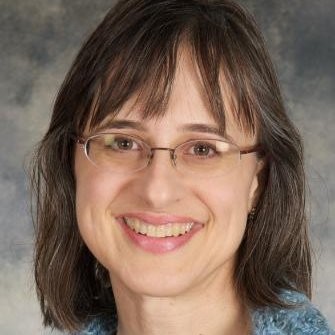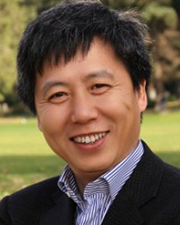Meaningful learning is not knowledge acquisition. It’s about the growth of the individual.
Dr. Yong Zhao, Professor and Author
Luba Vangelova (founder of The Hub—a community which offers programs and support for independent, life-long learners) recently connected with Dr. Yong Zhao (author of Reach for Greatness: Personalizable Education for All Children) to discuss his book and why personalized, co-owned learning can unleash children’s boundless potential and innate passion for learning. Below are edited excerpts from their conversation (view the full conversation here).
Luba: What is the importance of identifying the “why” of a child’s learning journey?
Dr. Zhao: Asking about the “why” of learning is a fascinating question that I see as having three elements.
First, learning is foundational to our development and survival as human beings. When you’re born, you have to develop the knowledge, skills, and understanding of your environment before you can control it.
Second, there’s a natural tendency, as adults, to foster and nurse young people’s learning. This shows up in the desire to create a learning environment that can support the cultivation of certain talents and passions in students.
Third, there’s an investigation of, “What do you want to learn?” that needs to be present. And, there’s a related conversation happening regarding why governments and educational systems are prescribing what you should be learning. That seems like the wrong course.
Those entities don’t really understand you or what you need in order to thrive as a citizen and individual in the future. Parents are more attuned to their children’s needs and that’s where the distinction begins. We’re losing sight of the human element.
There’s a lot of software being used to support personalized learning, but that’s a learning machine, not actual learning. Machine-paced, personalized learning forces children to learn without ever questioning if something is even worth learning.
I believe children (with parents’ guidance) have the right to determine what they want to learn and who they will become in the future. To thrive in life, you need to know your own uniqueness. It’s about having the agency to ask, “Who am I?”, “What’s my innate passion or talent?”, and “What kind of support do I need to deepen my understanding of those things?” That’s how we should envision the future of education.
Luba: Can you talk a bit more about the “uniqueness factor” and the shared ownership components of education?
Dr. Zhao: In many conventional schools, learning is often predetermined, and students’ individuality is too often ignored. We try to ignore the divergence and diversity of our students, but they are the product of both nature and nurture. Children are born with differences in talents, personalities, and desires, and they also have different experiences that shape them as people.
This results in students arriving at school as different individuals, only to have their education push them to be the same, which goes against human nature. That’s a remnant of the industrial age and also where the tension occurs among students and between parents and schools. This causes communication and everything else to break down. A system should be designed to enable parents, schools, teachers, and students to participate in constructing what learning should look like with a lens to the public good.
You need students to co-own their learning. The myth is that this is about letting students do whatever they want to do. That’s not true. However, they shouldn’t lose the capacity to advocate for their learning.
A personalized curriculum gives students a role in their learning and allows them to ask, “What would I like to learn?” Then, once they’ve developed a unique learning path based on what they discover from that inquiry, they can continue to evolve as creative and entrepreneurial learners. They can gain an understanding of the value their uniqueness (whatever it may be) contributes to others and society.
Through that, young people come to see themselves as part of an interconnected world where they are empowered to be problem solvers and to help others. That’s core to who we are as humans and, hopefully, a path to enlisting learners in creating a more harmonious society.
Luba: What advice do you have for parents eager to create an environment that empowers their children to co-own their learning?
Dr. Zhao: Creating an environment for co-learning starts with asking a child what they want to learn and meeting them where their interests are.
For example, there’s a lot a child can learn from playing video games. And, questions like, “What do you think you’re learning from this experience?” or “How can this be a learning opportunity?” can be very helpful. The danger comes when there’s a lot of mindlessness to an activity. And, it’s because parents aren’t always paying attention to where learning could happen. Asking questions removes the barrier and engages kids in a meaningful way.
This issue is rooted in the structure of conventional education. In our schools, our children’s learning is often confined to the classroom. And, their understanding becomes “learning happens inside, including when I’m doing homework.” The result is once they go outside to play (or engage in other activities), they perceive their learning as being over.
We need to help children develop the mindset that learning is happening all the time and everywhere. When that shift occurs in their thinking, learning becomes more enjoyable. It becomes an extension of the things that normally bring them happiness.
Just because they’re doing the same activity all the time—because they enjoy it—doesn’t mean they aren’t learning something new. There might be four ways to do the same activity and endless opportunities for discovery. And, that’s wisdom they’ll always be able to apply to their lives.
Luba: Why do we need to go beyond simply asking children what they learned on a given day?
Dr. Zhao: I don’t feel, “What did you learn today?” is the right question. A child might say they learned a U.S. president’s birthdate. It’s a very random fact and not very important to their unique interests. In that scenario, you’re forcing children to recall a specific piece of knowledge they acquired.
In today’s world, our children have more access to information than we ever did. As an example, I arrived in this country as an immigrant, and a lot of what I’ve learned about American society, I’ve learned from my children. But, that’s not enough. Meaningful learning is not knowledge acquisition. It’s about the growth of the individual.
It’s true that there’s so much we can expose them to. But, that information needs to be used as a tool for discovering what sparks their curiosity. To support a child’s learning journey, we need to ask questions such as, “What did you do today that was interesting?” or “Was that engaging?” or “Would you like to spend more time doing that?”
This really engages them in the process of shaping their educational journey and shows genuine curiosity in their daily learning.
Luba: Speaking of access to information, what is foundational to effective online learning?
Dr. Zhao: First, I think we need to start seeing hybrid learning or flipped learning (which both include an online component) as natural variations of learning because meaningful learning can happen online or face-to-face.
To make online learning more meaningful, I think we need to focus on deepening the interaction component. Access to online information does not necessarily need interaction. Students can watch a recording alone. That’s simply “knowledge getting.”
We should insert more dialogue and rethink the need for students to spend more time on their own. Through interacting with peers, even virtually, students can learn from each other. And, it is also possible that through more dialogue with instructors, students can be guided to think about something in a different way.
This can all happen online, but of course, the key is how you organize it.
It should be less about telling people what to do and more about asking good questions. It’s about what new information we can offer each other and digest together in a collaborative way. It shouldn’t be a conversation about something you can simply find on Google. That’s too superficial.
Another significant piece of this is “off-task” conversations, which I define as unstructured interaction. If we’re staying within the context of the current moment, where there isn’t a lot of face-to-face engagement, we need to think about the value of those incidental, casual conversations.
When everyone goes online, they’re so focused on teaching or learning. That doesn’t leave enough space to chat about other, non-academic things. Students need time to relax and socialize. When I was a kid, a lot of what I learned happened in these social situations. Engagement during this unstructured time enables young people to grow together in less formal ways. That’s why our kids will eventually need to return to a time where in-person interaction can regularly occur. Socialization is core to our humanity and development.


